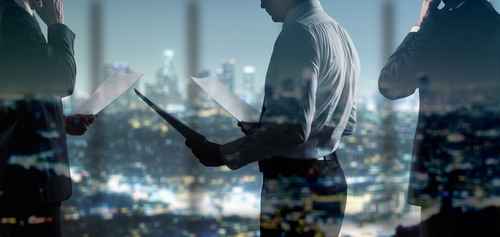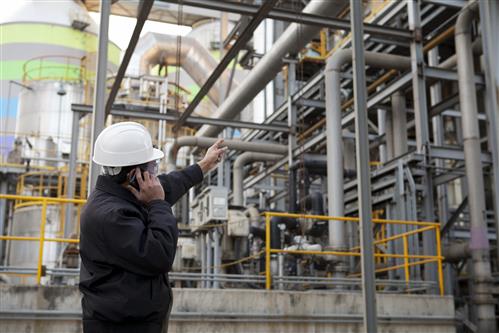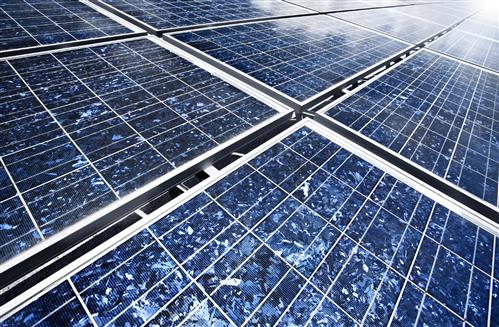The Green Dividend: Reducing Office Energy Consumption Pays Off
Commercial buildings, including offices, use an incredible amount of energy for climate control, lighting and to power equipment like computers, machines, and tools. Unfortunately, a significant amount of that energy is wasted, being used to power items not in use, or to light or heat and cool empty buildings. Adopting policies to reduce energy consumption can not only reduce office buildings’ environmental impact, it can also yield savings and create goodwill among an increasingly eco-conscious public.

Methods of reducing energy consumption and waste in office buildings can include remarkably simple, but effective practices like shutting off equipment and lights that aren’t being used, and more elaborate plans like energy audits. Whether your company is a financial services firm or specializes in making spray-on bed liner products, cutting back on energy consumption can have tangible benefits.
Commercial Buildings Account for One-Fifth of Energy Consumption
According to the U.S. Energy Information Administration, commercial buildings – including office spaces, retail stores, and educational facilities, among other buildings – account for more than 19 percent of U.S. energy consumption. Surprisingly, office buildings consume the most energy of all commercial building types.
The EIA estimates that office buildings consume more than a quadrillion British Thermal Units of energy each year. The average office building is estimated to consume an average of about 1.4 billion BTUs per year. The EIA estimates that office buildings spend $1.51 per square foot on energy. The average for all commercial buildings is $1.19 per square foot.
Energy experts estimate that almost one-third of energy consumption in offices is waste – electricity consumed by inefficient systems or wasted on powering lights in unoccupied rooms or devices that aren’t in use. Eliminating this waste could reduce greenhouse gas emissions and save companies billions in energy costs each year.
Tips for Going Green
Fortunately for many office building owners, there are a variety of ways they can reduce their energy consumption. For older buildings, even small steps like putting lights on timers and investing in new insulation can yield huge savings in energy bills.
- Encourage energy efficient practices – Set policies encouraging employees to shut computers off at the end of the day, and turn off equipment and lights not in use. Also set policies regarding the use of space heaters and other devices employees might bring from home.
- Conduct an energy audit – An energy audit can identify ways your company can save on electrical costs. Energy experts can find a variety of ways for office buildings to save money, including retrofitting HVAC systems, installing new lights, fixing problematic infrastructure, and much more. Many energy audit firms paired with renovation companies now offer contracts that finance renovations with the electric bill savings companies realize from energy-saving improvements recommended by the audit firms.

- Reduce printing – Cutting back on printing not only reduces energy usage, it also saves paper. Encourage employees to use digital versions of documents wherever possible and enable features that print on both sides of a sheet of paper to cut back.
- Replace lighting – Older office buildings may use inefficient incandescent lighting. By replacing these obsolete lighting systems with CFLs, offices can save big on energy expenses. CFLs last longer and use an estimated 75 percent less energy than traditional light bulbs.
- Establish work from home days – Why use your electricity when you can get your employees to use theirs? By setting aside one or two days per week for employees to work from home, you can reduce energy bills. Your employees will like it because they get to avoid their daily commute and get a little laundry done while they work.

- Use videoconferencing – By scheduling meetings via Skype and other videoconferencing tools, you can reduce your company’s energy consumption from travel. It won’t cut the office power bill, but it will reduce the company’s contribution to green house emissions from use of planes and automobiles.
- Replace older equipment and appliances – Your office fridge and microwave may be big energy hogs if they’re more than five to seven years old. By replacing older appliances with newer, energy efficient appliances, you can reap significant energy savings. Search for appliances that are Energy Star rated to get the best value.
- Use technology to your advantage – New wireless communication and Internet technology make it easier than ever to manage your office energy use. Make use of programmable thermostats and lighting systems that adapt to your usage habits, and which can be programmed from your smartphone. A tighter grip on heating and cooling and lighting can yield big savings.

- Become more conservative about HVAC use – By turning the thermostat one degree up in the summer and one degree down in the winter, your office can realize significant energy savings. Relaxing the dress code a little to accommodate more hot and cold temperature appropriate clothing can help get employees onboard with this change.
- Look to your windows – Windows can be a big source of energy loss. During the summer months, UV rays coming through windows can heat up a building. Also, drafts in sealing around windows can result in energy loss during the winter. Applying UV-resistant tinting to your windows can help reduce UV ray penetration, thus reducing your cooling costs during the summer months. Scorpion Window Film, a manufacturer of privacy and UV window film can help.
- Go solar – While you may not be able to power your entire office building with solar energy, there are a variety of functions you may be able to power by installing solar panels, like hot water heaters and outdoor lighting. Consult with an energy expert to see how going solar can benefit your company.

Public Relations Benefits of Going Green
If you’ve watched many commercials lately, it’s likely you’ve seen at least a few touting the green credentials of their sponsors. Big corporations like Walmart and McDonalds have launched green initiatives and aren’t shy to talk about them. Public awareness of green issues in recent years has grown, and these companies are seeking to garner a little public goodwill by showing that they’re good corporate citizens by improving their environmental record.
According to Environmental Leader, more than 70 percent of American consumers think about companies’ environmental record when they shop. That’s up from 66 percent in 2008. Research shows that 7 percent think about environmental issues on each shopping trip, while about a fifth consider these issues on a regular basis. Around 44 percent consider these issues occasionally.
By making strides toward better environmental practices and making sure that the public is aware of these efforts, companies can tap into a sizable reservoir of good will. This public relations “bump” can help companies weather adverse events and also build their brand as a responsible corporate citizen. It’s a worthwhile investment, and proof that doing good has its benefits.
For companies seeking to improve their energy usage, Scorpion Window Film can provide one critical aspect of their energy management policy. Scorpion Window Film makes UV coatings used in large office windows to block UV rays that cause excess energy consumption for climate control during the summer months.

Scorpion Window Film is one of the most respected names in the industry. Facilities managers who choose Scorpion for their window tinting needs will know that they’re getting a quality product from a manufacturer that cares. To begin realizing the benefits from this simple and efficient means of cutting back on energy waste, consult with Scorpion Window Film today.
Sources:
http://www.environmentalleader.com/2013/04/03/71-of-consumers-think-green-when-purchasing/
http://www.energystar.gov/ia/partners/publications/pubdocs/C+I_brochure.pdf?442a-1e83
http://www.dvirc.org/how-much-energy-does-an-office-building-consume/
For more information about UV protection with privacy window film, visit https://scorpionwindowfilm.com/privacy/
